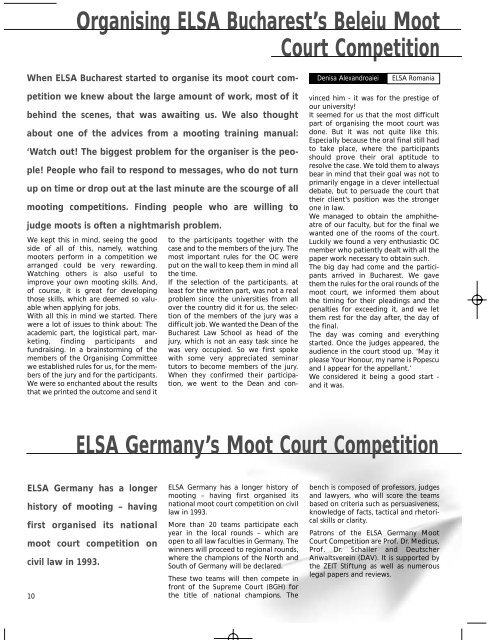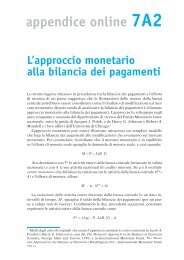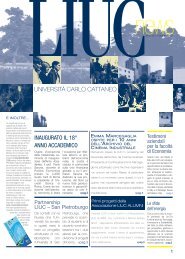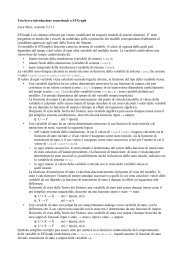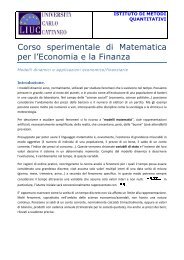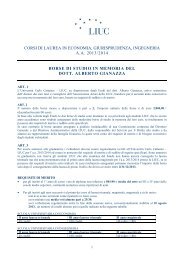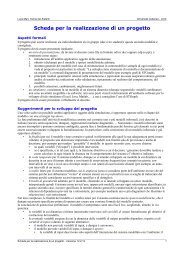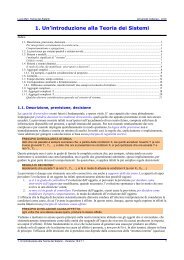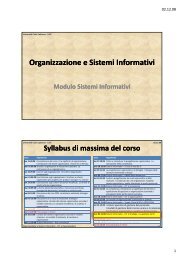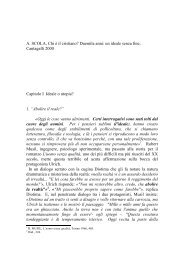<strong>ELSA</strong> France and the MootCourt CompetitionMoot Court in MaltaAlexandre Doria<strong>ELSA</strong> FranceMark Refalo<strong>ELSA</strong> Malta<strong>ELSA</strong> France first organised itsnational moot court competitionin the year 2000.<strong>The</strong> competition is divided intothree rounds. In the localrounds, which take place at alllaw faculties in France where<strong>ELSA</strong> is represented, a jurychooses the best teams.<strong>The</strong> winning teams will compete for theparticipation in the final in a pre-round. Inthis pre-round the teams have one full dayto prepare their written memorials which,after being collected by the VP AA of <strong>ELSA</strong>France, are reviewed by professors andlawyers.<strong>The</strong> final for the two teams having producedthe best memorials takes place inthe end of June in the Cour de Cassation,the French civil Supreme Court. After havinga day of preparation the teams areasked to plead in front of a bench composedby professors, lawyers, the Presidentof the Cour de Cassation, members of theConseil d’Etat, members of the administrativeSupreme Court and members of theConseil Constitutionnel, the constitutionalSupreme Court.In the first year the team from Aix-en-Provence won against the team from Paris,in 2001 the team from Paris was defeatedby the team from Dijon.<strong>The</strong> winning teams have the opportunity togo on an internship in some of France’sfinest institutions.Working for the realisation of the <strong>ELSA</strong>France Moot Court Competition is a greatadventure and for sure as exciting aspreparing your pleadings in the Cour deCassation.<strong>ELSA</strong> Malta has been organising the National Rounds ofthe Philip C. Jessup International Moot Court Competition(organised internationally by ILSA – the International LawStudents’ Association) for the past seven years.<strong>The</strong> competition revolves around a conflict,concerning current internationallaw issues, between two fictional states.<strong>The</strong> teams will act as lawyers for bothstates. <strong>The</strong>y must first present twobriefs, containing their pleadings. <strong>The</strong>ywill then argue the case out againsteach other orally in front of a panel ofjudges composed of legal experts – followinga procedure that is loosely basedon that of the International Court ofJustice.This year’s competition was titled:‘International Law in the Internet Era’,and addresses two primary issues: Stateregulations of content on the Internetand cyber-terrorism (hacking et al). Infact the teams had to discuss a numberof issues such as do broad restrictions onaccess to resources on the Internet violateinternational law? Can a state beliable for the actions of an anonymoushacker? What if it indirectly encouragessuch actions? Can a state lure a foreignerinto its territory, intending to arrestand prosecute him, with false promisesof immunity?<strong>The</strong> five teams that took part in thenational rounds spent many a sleeplessnight preparing their arguments to beable to award the spectators with a brilliantshow during the oral rounds of thecompetition (held between the 5th and14th of December 2001). At the sametime the judges also played an activerole in their discussions by asking somekiller questions ensuring that the teamshad to do more than simply read preparedpapers. <strong>The</strong> heated argumentsthat resulted sure made the oral roundsinteresting for the spectators.On the 14th of December, after thejudges Rozakis and Turmen, two judgesof the European Court of HumanRights, had awarded the prizes to thewinners, a celebratory reception washeld. <strong>The</strong>re was a lot to celebrate onthat day, the winners celebrated winning,the other participants celebratedtheir return to a normal life, the boardof <strong>ELSA</strong> Malta celebrated the end of avery hectic week and the beginning ofanother such week; since this event alsocoincided with the start of <strong>ELSA</strong> Malta’smultilateral study visit with <strong>ELSA</strong>Corunna, <strong>ELSA</strong> Athens and <strong>ELSA</strong>Palermo most of the participants ofwhom were present celebrating theirarrival in Malta.<strong>The</strong> celebration has become as much atradition as the national rounds; its purposeis to allow the participants to discussthe issues raised in the competitioninformally amongst themselves andwith spectators and judges. Its popularityhowever may be due to the fact thatit is organised in an Academic Activitiesfashion and tries to imbue all presentwith an academic spirit.<strong>The</strong> winners have a lot to celebrate,apart from the personal satisfactionand honour of winning the competitionthey also win the right to representMalta during the international roundsof the Jessup International Law MootCourt Competition held in WashingtonD.C. between the 10th and 16th ofMarch 2002. <strong>The</strong> international roundsare in fact the main reason behind holdingthe national rounds. Over the past40 years, ILSA has developed the Jessupcompetition into one of the largest andmost prestigious moot court competitions– with around 1500 teams fromover 300 law schools, located in over 50countries, participating annually. It ismore than just a mere academic experiencethat trains the participants in thepractical aspects of the law. It is a trulyinternational event and an opportunityfor all participants to meet with similarlyminded students from all across theglobe. In many respects this is rewardenough for the participants.<strong>ELSA</strong> Malta would like to thank itssponsors through whom it was able toprovide the flight and accommodationfor the Maltese team: <strong>The</strong> MaltaMaritime Authority, Sullivans Ltd, theEmalta Commission, the Malta FinancialServices Centre, the Faculty of Laws andVASCAS Ltd.9
Organising <strong>ELSA</strong> Bucharest’s Beleiu MootCourt CompetitionDenisa Alexandroaiei<strong>ELSA</strong> RomaniaWhen <strong>ELSA</strong> Bucharest started to organise its moot court competitionwe knew about the large amount of work, most of itbehind the scenes, that was awaiting us. We also thoughtabout one of the advices from a mooting training manual:‘Watch out! <strong>The</strong> biggest problem for the organiser is the people!People who fail to respond to messages, who do not turnup on time or drop out at the last minute are the scourge of allmooting competitions. Finding people who are willing tojudge moots is often a nightmarish problem.We kept this in mind, seeing the goodside of all of this, namely, watchingmooters perform in a competition wearranged could be very rewarding.Watching others is also useful toimprove your own mooting skills. And,of course, it is great for developingthose skills, which are deemed so valuablewhen applying for jobs.With all this in mind we started. <strong>The</strong>rewere a lot of issues to think about: <strong>The</strong>academic part, the logistical part, marketing,finding participants andfundraising. In a brainstorming of themembers of the Organising Committeewe established rules for us, for the membersof the jury and for the participants.We were so enchanted about the resultsthat we printed the outcome and send itto the participants together with thecase and to the members of the jury. <strong>The</strong>most important rules for the OC wereput on the wall to keep them in mind allthe time.If the selection of the participants, atleast for the written part, was not a realproblem since the universities from allover the country did it for us, the selectionof the members of the jury was adifficult job. We wanted the Dean of theBucharest Law School as head of thejury, which is not an easy task since hewas very occupied. So we first spokewith some very appreciated seminartutors to become members of the jury.When they confirmed their participation,we went to the Dean and convincedhim - it was for the prestige ofour university!It seemed for us that the most difficultpart of organising the moot court wasdone. But it was not quite like this.Especially because the oral final still hadto take place, where the participantsshould prove their oral aptitude toresolve the case. We told them to alwaysbear in mind that their goal was not toprimarily engage in a clever intellectualdebate, but to persuade the court thattheir client's position was the strongerone in law.We managed to obtain the amphitheatreof our faculty, but for the final wewanted one of the rooms of the court.Luckily we found a very enthusiastic OCmember who patiently dealt with all thepaper work necessary to obtain such.<strong>The</strong> big day had come and the participantsarrived in Bucharest. We gavethem the rules for the oral rounds of themoot court, we informed them aboutthe timing for their pleadings and thepenalties for exceeding it, and we letthem rest for the day after, the day ofthe final.<strong>The</strong> day was coming and everythingstarted. Once the judges appeared, theaudience in the court stood up. ‘May itplease Your Honour, my name is Popescuand I appear for the appellant.’We considered it being a good start -and it was.<strong>ELSA</strong> Germany’s Moot Court Competition<strong>ELSA</strong> Germany has a longerhistory of mooting – havingfirst organised its nationalmoot court competition oncivil law in 1993.10<strong>ELSA</strong> Germany has a longer history ofmooting – having first organised itsnational moot court competition on civillaw in 1993.More than 20 teams participate eachyear in the local rounds – which areopen to all law faculties in Germany. <strong>The</strong>winners will proceed to regional rounds,where the champions of the North andSouth of Germany will be declared.<strong>The</strong>se two teams will then compete infront of the Supreme Court (BGH) forthe title of national champions. <strong>The</strong>bench is composed of professors, judgesand lawyers, who will score the teamsbased on criteria such as persuasiveness,knowledge of facts, tactical and rhetoricalskills or clarity.Patrons of the <strong>ELSA</strong> Germany MootCourt Competition are Prof. Dr. Medicus,Prof. Dr. Schaller and DeutscherAnwaltsverein (DAV). It is supported bythe ZEIT Stiftung as well as numerouslegal papers and reviews.


